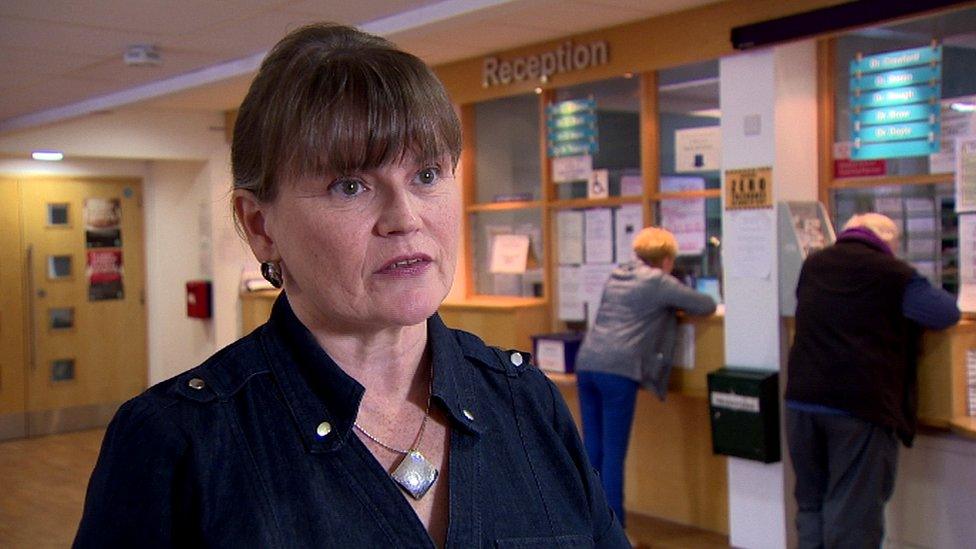The changing role of a Northern Ireland GP
- Published

Dr Grainne Doran said her role has dramatically changed since she saw her first patient back in the early 1990s
Dr Grainne Doran qualified as a GP 25 years ago.
Speaking from her surgery in Bangor Health Centre, Dr Doran told the BBC while she loves her job, her role has dramatically changed since she saw her first patient back in the early 1990s.
"The job I came into compared to what I do now is very, very different," she said.
"Everything from the environment where we work, to the amount of patients, to the variety and severity of conditions, the complexity of disease presented to us, and from the demands made on us is just huge."
'Stress levels'
Dr Doran usually arrives at the practice around 8am.
From her small consulting room she said she is there to serve the patients, but increasingly the lists are growing, as are the stress levels to perform her job to the best of her ability.
"To say I am very busy would be the best way to sum it up - I know I am really busy when I don't have adequate enough time to see my patients well," she said.
"It's then I feel stressed and that is happening increasingly. There may have been one or two days a week when I felt I was losing control, but that is happening every day."
When I met Dr Doran she told me that while she works part-time, she rarely leaves on time and usually has to work in the evening at home.
"Whenever I came into medicine I had a lot more time to see each patient, but back then we had a lot less we could actually do for them," she said.
"Nowadays the amount of investigation available and the amount and range of medication available is a lot greater and that all requires more time. Yes, we can do a lot more for patients, but we need more time to do it."
Dr Doran said that in the past, more patients had to be sent to day clinics at hospitals for investigations, but that is now done in the practice or at a health centre.
She said that while that is progress, it adds more pressure onto the already fragile system.
"The administration and the paper end of things is huge," she said.
"In my normal day, between seeing patients and doing paper work, reading results, writing letters, forwarding on for consultations - while I may be seeing patients for around four hours, all the paper work has to be done as well.
"So while I am part-time and should leave at 1pm, I normally stay on for another two hours, go home to the children and then work again in the evenings.
"So I turn the computer on when the kids go to bed then I remote access the paper system from my study and work for another two hours."
According to Dr Doran, opening longer hours isn't the answer - the system instead needs more doctors, in fact another 400 in the next five years.
- Published5 September 2015

- Published5 September 2015
- Published6 September 2015

- Published6 September 2015

- Published4 December 2014
